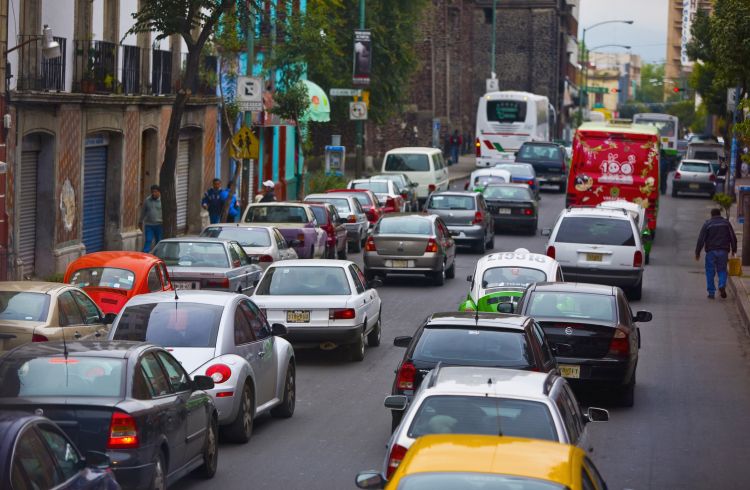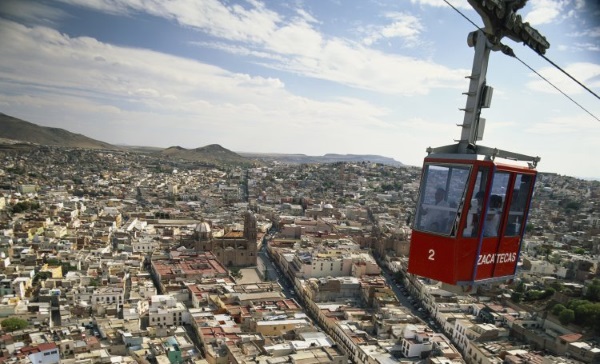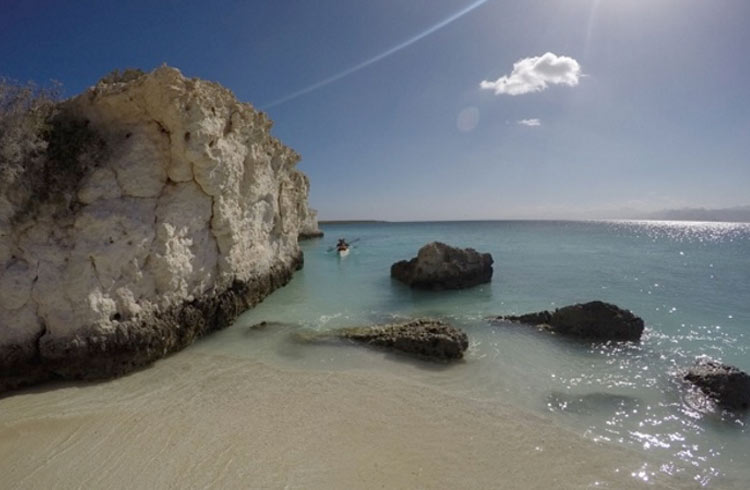Transport in Mexico: Tips for Traveling Around Safely
Mexico is an large country with so much to see. Here's how to stay safe while on the road.
 Photo © GettyImages/Glow Images
Photo © GettyImages/Glow Images
Bus Travel
When people think of bus travel in Latin America, the image of a colorful school bus spluttering along in a fog of fumes, reverberating to cacophonous Banda music springs to mind. Sure enough, off-the-beaten-track, that's the reality of bus transportation in Mexico. Chicken buses connect small towns and villages, or rather stop randomly for anyone, anytime, man or beast. While terribly inefficient, traveling
First-class bus services efficiently connect most major cities and towns, but journeys can be long and costs can accumulate. If you were to travel from Tijuana to Cancún, it could take up to three days on several buses, and set you back up to US$650, depending on which provider you go with.
So, if your travels are time-sensitive (or you're concerned about traveling through known drug-trafficking regions), a domestic flight is often not much more expensive.
However, the first class (
While you can save the price of a hotel room if you travel overnight, there are risks attached. Always check locally on the safety situation
Regardless of the time of day, always keep an eye on your belongings and secure your valuables. Transport hubs are hotspots for pickpockets and thieves.
Don't forget to pack some motion sickness tablets, as some roads can be windy or rough, plus toilet paper and anti-bacterial gel. There's nothing worse than needing to use the bathroom and finding there's no paper.
Taxis
Taxis can be a cheap way to get around some of Mexico's major cities and popular holiday spots. They are also a safe option especially if you plan to head for a night out. But you need to know which ones to hire as picking the wrong type can sometimes mean the difference between being scammed on the fare or worse, getting express kidnapped.
It's best to get your accommodation or restaurant to book you an authorized taxi
Some drivers will tout for fares inside the terminal, waiting for unsuspecting travelers to scam with an expensive fare. A simple "No, gracias" usually solves the problem.
Authorized taxis are regulated by the city they operate in and operate by
Try to avoid traveling during peak hours if you are staying in a city, traffic congestion can make a ride more expensive than usual. Avoid hailing taxis from the street after dark.
Knowing some Spanish can help you get where you are going plus negotiating the fare. If language is still a barrier, make sure you have a map (hardcopy or digital) or the details of the place you are heading to e.g accommodation, restaurant etc.
Driving in Mexico
Mexican roads present challenges for every driver, from busy city areas to poor road conditions in rural areas. More than 16,000 people lost their lives in 2016. Mexicans drive on the right side of the road. To rent a car in Mexico, you must be 23 or older and carry a full valid license plus an International Driver's Permit. The wearing of seat belts is compulsory.
In Mexico City, some locals disregard the road rules, run red lights and stop signs and make illegal turns. Even when you aren't confronted with negligent drivers, it can sometimes feel like the whole city was designed just to enrage you. Mexican cities seem to have a large number of one-way streets (sometimes with no street signs).
Since 2017, the use of cell phones while driving has been illegal however people still push their luck. The blood alcohol limit in Mexico is 0.08, which is higher than in many other countries.
Traveling outside of big cities can seem daunting for any visitor behind the wheel. While new highways are in excellent condition (especially the shockingly expensive toll roads), when driving on village roads you may need to navigate crater-size potholes, livestock that may wander in front of your vehicle when you least expect it, and omnipresent topes (large speed bumps). Roadside shrines stand as testaments to the perils of driving Mexico's serpentine mountain routes (often unpaved and with no lighting) which are prone to mudslides during bad weather.
For safety reasons, it's strongly advised that you do not drive at night due to the high risk of robbery and violence from thieves.
Distances in Mexico can be inaccurate and GPS can be of little help if you are driving in remote areas. If you get lost, it's always a good idea to cross-check information with a few sources.
Corrupt Mexican police may stop foreign-plated vehicles or rental cars for no reason other than to solicit a bribe. The local authorities are trying to stamp out this behavior, however, if you are stopped by police officers trying to make some extra coin on the side, check out our advice on how to deal with a
Related articles
Simple and flexible travel insurance
You can buy at home or while traveling, and claim online from anywhere in the world. With 150+ adventure activities covered and 24/7 emergency assistance.
Get a quote

No Comments